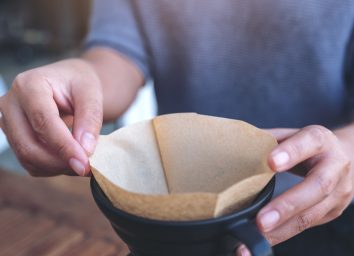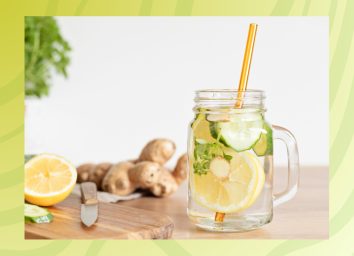What Happens To Your Body When You Drink Espresso
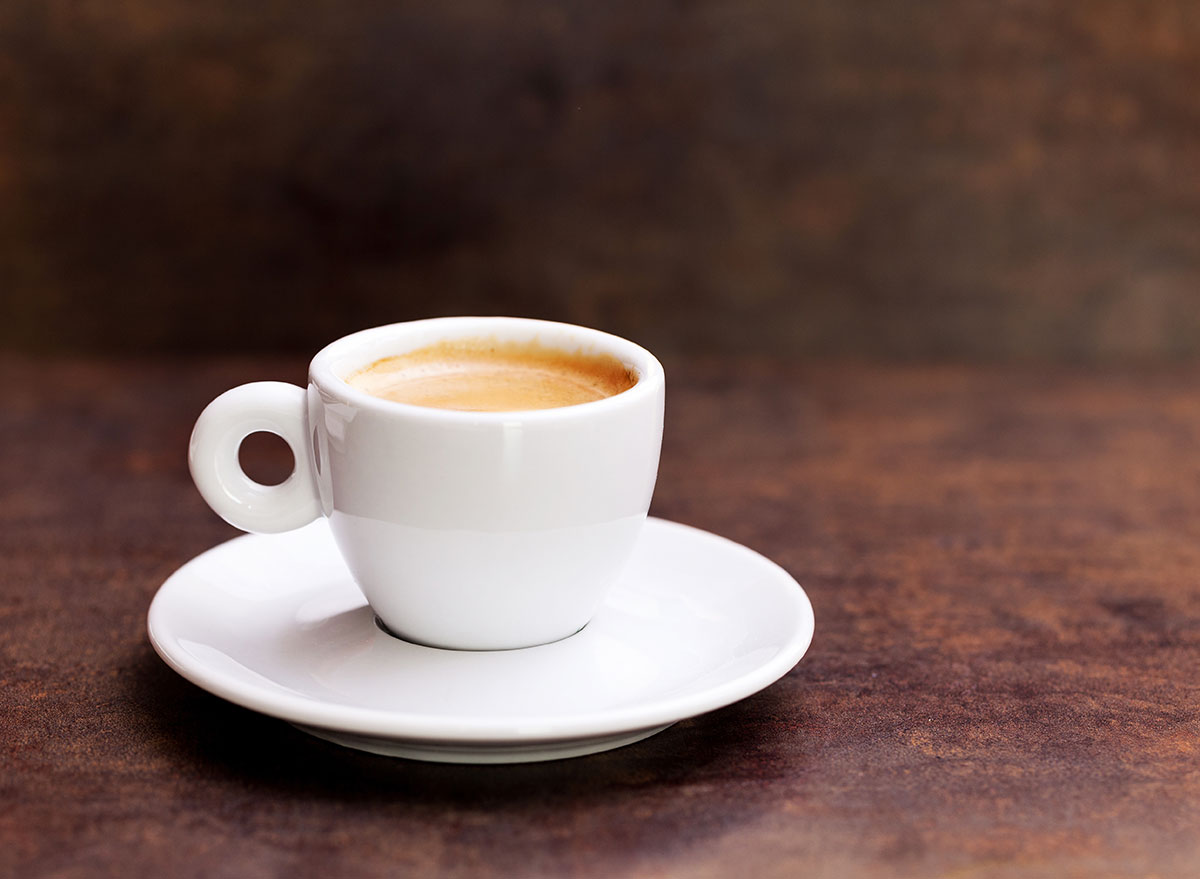
Espresso is a quintessential pick-me-up. For those who are too busy to tote an entire coffee around all afternoon, the beverage is undeniably more efficient: two shots of espresso contain more caffeine than your standard cup of drip coffee, and they go down quicker, too.
But the traditional European beverage does more to a person than just expedite their caffeination levels. We spoke to experts to find out what exactly happens to your body when you drink espresso regularly. Here's what they had to say, and for even more healthy tips, be sure to check out our list of The 7 Healthiest Foods to Eat Right Now.
You'll feel less tired, but potentially more anxious.
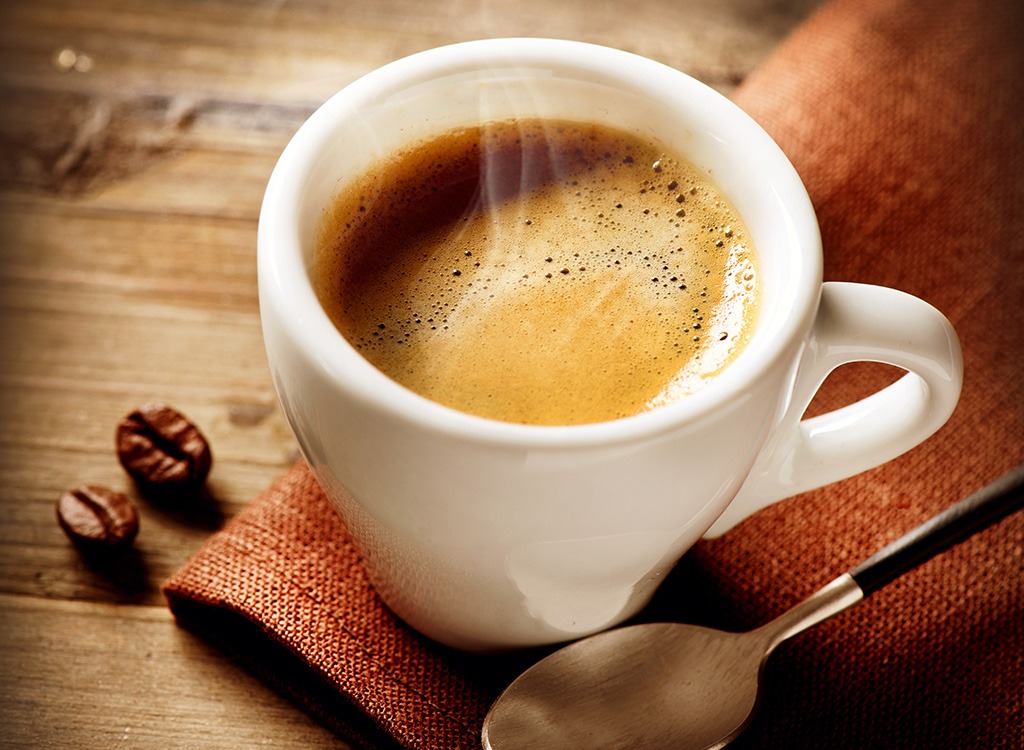
"Caffeine blocks adenosine, which is a chemical found in the brain that helps you feel tired while releasing the hormone called adrenaline, which heightens your energy," says Luna Regina, nutritionist and founder of Healthy Kitchen 101.
However, she cautions, "extremely high intake of espresso causes jitteriness and nervousness, which are common symptoms of anxiety."
To avoid feeling anxious, temper your espresso intake. According to the USDA, a typical 2-ounce cup of espresso contains 128 milligrams of caffeine. Given that you're allowed up to 400 milligrams of caffeine a day, that averages around 3 shots of espresso, or 4 cups of 8 oz. black coffee.
Here are the 5 Side Effects of Drinking Too Much Coffee.
You may absorb less nutrients.

According to Lisa Richards, nutritionist and author of The Candida Diet, adenosine isn't the only thing caffeine blocks.
On a cellular level, she explains, caffeine acts as an inhibitor—meaning that it can inhibit the absorption of some vitamins and minerals. Specifically, Richards points out the decreased absorption of iron, B vitamins, and calcium. This side-effect isn't necessarily noticeable, and if drink espresso regularly, you should consider looking for ways to get those vitamins and minerals through whole foods in your diet.
Here's What Happens to Your Body When You Cut Out Caffeine.
Your hormone levels might fluctuate.

Richards also adds that espresso has "notable impacts on hormones."
"Excessive caffeine intake … triggers the fight or flight hormones," she explains. "For women, caffeine alters estrogen levels."
These "fight or flight" hormones is your adrenaline being released throughout the body, which is a survival mechanism triggering your body to respond to situations around you. However, too much caffeine at once can put your body on very high alert, and could cause complications.
As for estrogen levels, shifts in estrogen can be risky for women. Richards goes on to explain that breast and ovarian cancer, as well as endometriosis, are all tied to changes in estrogen levels if drinking too much caffeine on the long term, according to a study published by the American Journal of Clinical Nutrition. this is why it's important to be cautious of how much caffeine you consume in a day, especially if you drink espresso.
Drinking it before a workout can help you reach new limits.
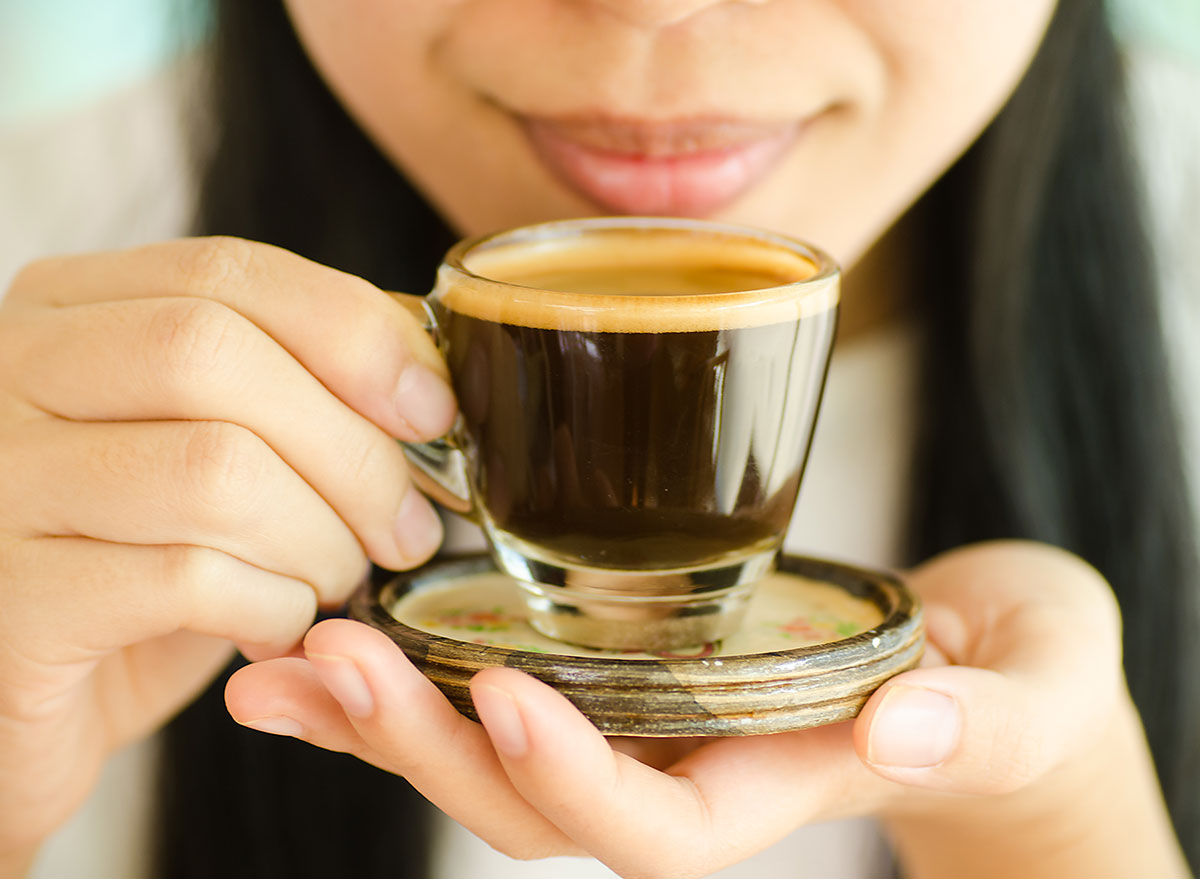
The effects of espresso can more or less be entirely tied back to the fact that it is simply a highly concentrated way to consume caffeine. Therefore, any benefit your average java provides, drinking espresso will, too.
When caffeine is served with a side of exercise, the positive effects are real. As fitness guru David McHugh attests, espresso can increase not only energy but also focus and concentration.
"When it comes to sports and athletic performance," he says, "you may even notice improved strength and physical effort, as well."
Alas, always be careful to workout with proper form and still treat your body well. And be sure to read up on these 15 Exercise Mistakes That Are Ruining Your Workout.
You may get dehydrated.
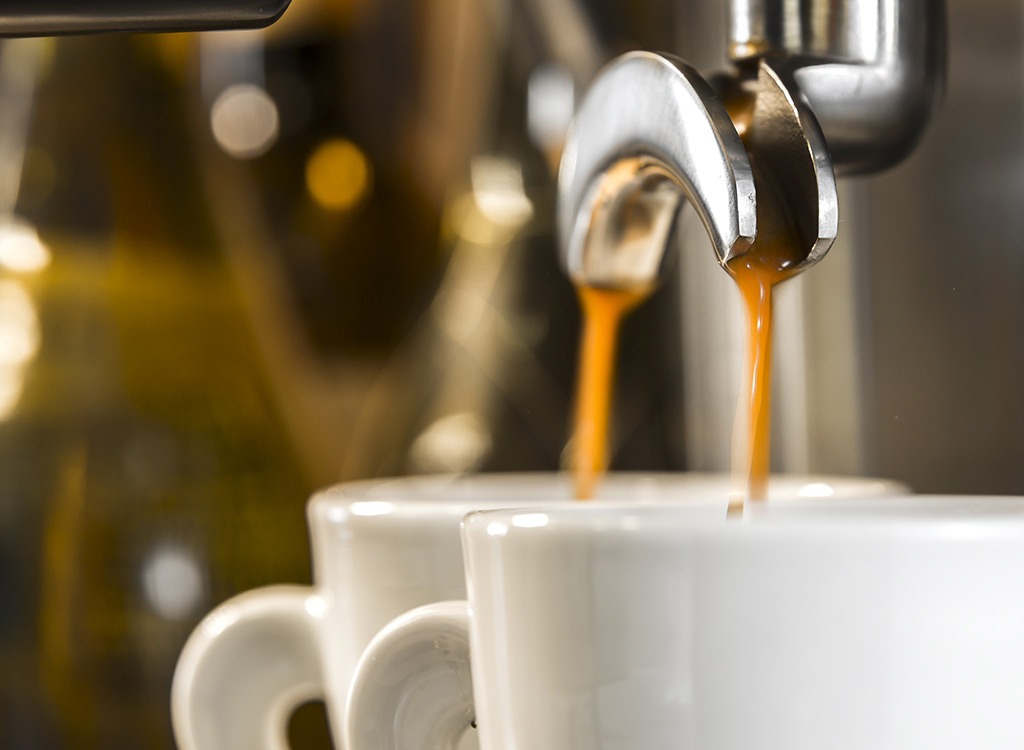
Trista Best, MPH, RD, LD a registered dietitian at Balance One Supplements, cautions caffeine consumers to be especially mindful of their hydration levels. "Excessive caffeine intake, especially through espresso, could be having a dehydrating effect on your body," she says.
Although some level of dehydration throughout the day is normal, she continues to explain, caffeine speeds up the process, and can widen the gap between the amount of fluids we naturally lose and the amount we're taking in.
When it comes to water versus espresso, Best concludes, "A safe and healthy balance can be struck between the two beverages. As a rule of thumb to prevent dehydration, you will want to drink a cup of water with every cup of coffee or caffeinated beverage."

